Predator for grasshoppers? Eating everything!
brandyray
12 years ago
Featured Answer
Sort by:Oldest
Comments (29)
Kimmsr
12 years agobrandyray
12 years agoRelated Professionals
Saint Louis Park Landscape Architects & Landscape Designers · Maple Heights Landscape Architects & Landscape Designers · Bellefontaine Neighbors Landscape Contractors · Brunswick Landscape Contractors · Commack Landscape Contractors · Desert Hot Springs Landscape Contractors · El Reno Landscape Contractors · Lees Summit Landscape Contractors · Morrisville Landscape Contractors · Nanuet Landscape Contractors · Pleasant Hill Landscape Contractors · Uxbridge Landscape Contractors · Whittier Landscape Contractors · Woodburn Landscape Contractors · Four Corners Landscape Contractorslazy_gardens
12 years agoKimmsr
12 years agobrandyray
12 years agoscarlettfourseasonsrv
12 years agoscarlettfourseasonsrv
12 years agobrandyray
12 years agoKimmsr
12 years agobrandyray
10 years agoKimmsr
10 years agobrandyray
10 years agolazy_gardens
10 years agofreki
10 years agobrandyray
10 years agowoohooman San Diego CA zone 10a
10 years agobrandyray
10 years agoKimmsr
10 years agorhizo_1 (North AL) zone 7
10 years agotamie_sandytxsoil
10 years agotamie_sandytxsoil
10 years agotamie_sandytxsoil
10 years agobrandyray
10 years agoGreeneGarden
10 years agoKimmsr
10 years agobrandyray
10 years agosandy0225
10 years agoKimmsr
10 years ago
Related Stories

TRAVEL BY DESIGNHouzz Travel Guide: New York City for Design Lovers
Where to stay, shop, eat and explore in the Big Apple, from a design-minded architect who lives there
Full Story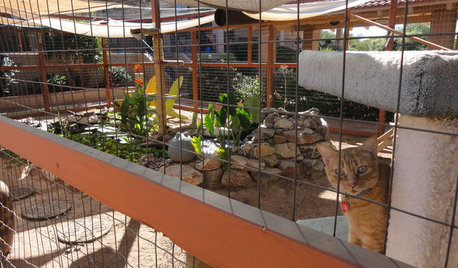
PETSSee a Deluxe 'Catio' Built for Feline Fun
Sixteen lucky cats get the run of a protected outdoor patio with ramps, steps and even a koi pond
Full Story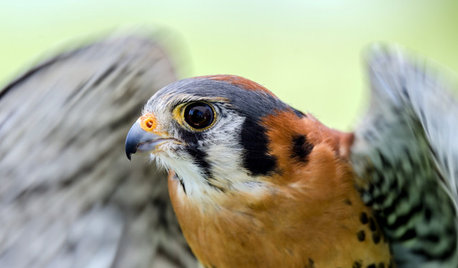
GARDENING GUIDESBackyard Birds: Create a Home for American Kestrels
These copper-colored birds of prey can be found throughout North and South America and often find habitats near human activity
Full Story
CONTAINER GARDENS7 Deer-Resistant Flowers for Your Summer Containers
Grow these as protection for edibles or just for their colorful beauty — deer might not like them, but everyone else will
Full Story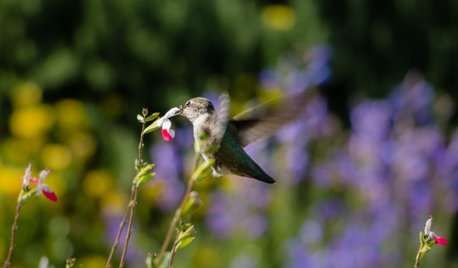
GARDENING GUIDESAttract Hummingbirds and Bees With These Beautiful Summer Flowers
Roll out a welcome mat for pollinators to keep your landscape in balance and thriving
Full Story
EDIBLE GARDENSHow to Grow Your Own Sweet Summer Crops
This guide will help any gardener get started on growing the freshest warm-season veggies and berries for summer
Full Story
PETSWe Want to See the Most Creative Pet Spaces in the World
Houzz is seeking pet-friendly designs from around the globe. Get out your camera and post your photos now!
Full Story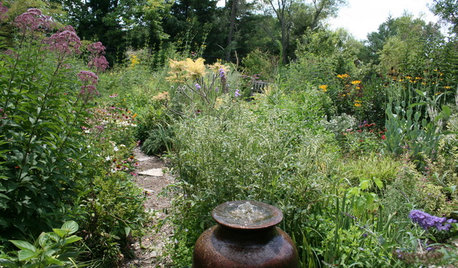
GARDENING GUIDESHow I Learned to Be an Imperfect Gardener
Letting go can lead to a deeper level of gardening and a richer relationship with the landscape. Here's how one nature lover did it
Full Story
INSPIRING GARDENSFrom Concrete Lot to Gracious Organic Garden in Seattle
Plants, pests and even weeds have a place in this landscape, which offers an edible bounty and a feast for the eyes
Full Story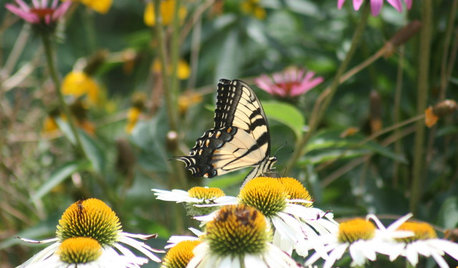
GARDENING GUIDESLessons in the Rewards of Selfless Gardening
Let go of gardening for your own vision and watch the garden’s own true vision come forth
Full Story






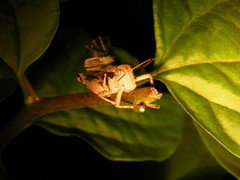

brandyrayOriginal Author